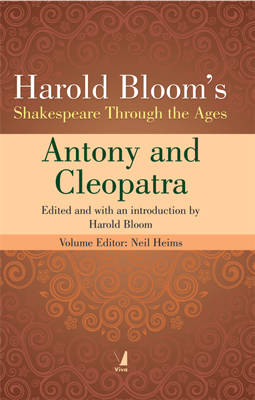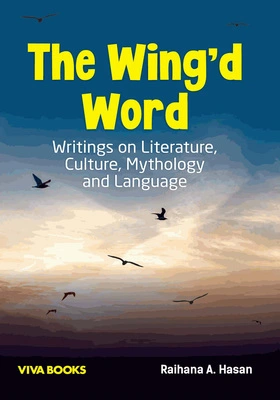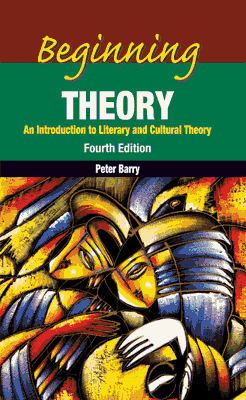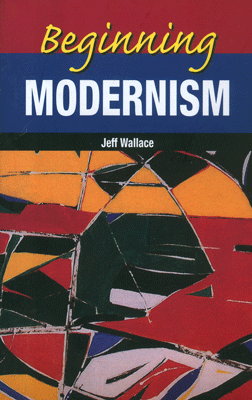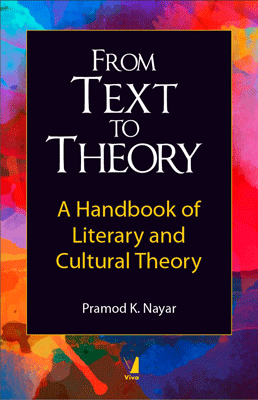Antony and Cleopatra
Antony and Cleopatra
Edited and with an introduction by Harold Bloom
₹535.50 ₹595.00 Save: ₹59.50 (10%)
Go to cart-
Out of Stock
ISBN: 9788130933832
Bind: Paperback
Year: 2016
Pages: 304
Size: 152 x 228 mm
Publisher: Facts On File Inc.
Published in India by: Viva Books
Exclusive Distributors: Viva Books
Sales Territory: India, Nepal, Pakistan, Bangladesh, Sri Lanka
Description:
Shakespeare's multifaceted Antony and Cleopatra has been seen on one hand as a romance about the transcendence of love and on the other as a lesson against neglect of duty. This invaluable new study guide to one of Shakespeare's greatest plays contains a selection of the finest criticism through the centuries on Antony and Cleopatra, including commentaries by such important critics as John Dryden, Samuel Johnson, Samuel Taylor Coleridge, Northrop Frye, Anne Barton, and many others. Students will also benefit from the additional features in this volume, including an introduction by Harold Bloom, an accessible summary of the plot, an analysis of several key passages, a comprehensive list of characters, a biography of Shakespeare, essays discussing the main currents of criticism in each century since Shakespeare's time, and more.
Each volume in the Bloom's Shakespeare Through the Ages contains the finest criticism on a particular work from the Bard's oeuvre, selected under the guidance of renowned Shakespearean scholar, Harold Bloom Intended for students just beginning their exploration of Shakespeare, these invaluable study guides present the best of Shakespeare criticism, from the 17th century to today. In the process, each volume also charts the flow over time of critical discussion of a particular work.
This essential series is unique not only in the range of commentary it provides on each of Shakespeare's greatest works, but also in its emphasis on the greatest critics in our literary tradition - including such critics as John Dryden in the 17th century, Samuel Johnson in the 18th century, William Hazlitt and Samuel Taylor Coleridge in the 19th century, A. C. Bradley and William Empson in the 20th century, and many more. Some of the pieces included are full-length essays; others are excerpts designed to present a key point.
Target Audience:
Students and academics of English Literature.
Contents:
Series Introduction • Introduction by Harold Bloom • Biography of William Shakespeare • Summary of Antony and Cleopatra • Key Passages in Antony and Cleopatra • List of Characters in Antony and Cleopatra
CRITICISM THROUGH THE AGES
Antony and Cleopatra in the Seventeenth Century • 1678-John Dryden From the Preface to All for Love
• 1680-Nahum Tate. From “Address to Edward Tayler,” in The Loyal General, a Tragedy
Antony and Cleopatra in the Eighteenth Century • 1759—”John Hill. From “Some Remarks upon the New-revived Play of Antony and Cleopatra” • 1765-Samuel Johnson From “Notes on the Plays,” in The Plays of William Shakespeare • 1774—Francis Gentleman. From Bell's Edition of Shakespeare's Plays • 1784—Thomas Davies From Dramatic Miscellanies
Antony and Cleopatra in the Nineteenth Century • 1809—August Wilhelm von Schlegel From Lectures on Dramatic Art and Literature • 1817-William Hazlitt. From Characters of Shakes pear's Plays • 1818—Samuel Taylor Coleridge From Shakspeare, with Introductory Remarks on Poetry, the Drama, and the Stage • 1832—Anna Murphy Brownell Jameson From Shakespeare's Heroines: Characteristics of Women, Moral, Poetical, & Historical • 1857—Charles Bathurst From Remarks on the Differences in Shakespeare's Versification in Different Periods of His Life • 1875—Edward Dowden From Shakspere: A Critical Study of His Mind and Art • 1896—Georg Brandes “The Dark Lady as a Model— The Fall of the Republic a World-Catastrophe,” from William Shakespeare: A Critical Study
Antony and Cleopatra in the Twentieth Century • 1901—George Bernard Shaw From “Preface: Better than Shakespear” from Three Plays for Puritans • 1909—A.C. Bradley From “Shakespeare's Antony and Cleopatra,” in Oxford Lectures on Poetry • 1931—G. Wilson Knight “The Diadem of Love: An Essay on Antony and Cleopatra,” from The Imperial Theme: Further Interpretations of Shakespeare's Tragedies Including the Roman Plays • 1951—Harold C. Goddard “Antony and Cleopatra,” from The Meaning of Shakespeare • 1972—Anne Barton. “Nature's Piece “Gainst Fancy”: The Divided Catastrophe in Antony and Cleopatra,” from An Inaugural Lecture (to the Hildred Carlile Chair of English Literature in the University of London tenable at Bedford College) • 1974—Rosalie L. Colie. “The Significance of Style,” from Shakespeare's Living Art • 1986—Northrop Frye. “Antony and Cleopatra,” from Northrop Frye on Shakespeare • 1988—”Laura Quinney. “Enter a Messenger,” from William Shakespeare's Antony and Cleopatra • 1988—Harold Bloom”Introduction,” from William Shakespeare's Antony and Cleopatra
Antony and Cleopatra in the Twenty-first Century • 2000--Jacqueline Vanhoutte”Antony's “Secret House of Death”: Suicide and Sovereignty in Antony and Cleopatra,” from Philological Quarterly.
Bibliography • Acknowledgments • Index
Series Introduction • Introduction by Harold Bloom • Biography of William Shakespeare • Summary of Antony and Cleopatra • Key Passages in Antony and Cleopatra • List of Characters in Antony and Cleopatra
CRITICISM THROUGH THE AGES
Antony and Cleopatra in the Seventeenth Century • 1678-John Dryden From the Preface to All for Love
• 1680-Nahum Tate. From “Address to Edward Tayler,” in The Loyal General, a Tragedy
Antony and Cleopatra in the Eighteenth Century • 1759—”John Hill. From “Some Remarks upon the New-revived Play of Antony and Cleopatra” • 1765-Samuel Johnson From “Notes on the Plays,” in The Plays of William Shakespeare • 1774—Francis Gentleman. From Bell's Edition of Shakespeare's Plays • 1784—Thomas Davies From Dramatic Miscellanies
Antony and Cleopatra in the Nineteenth Century • 1809—August Wilhelm von Schlegel From Lectures on Dramatic Art and Literature • 1817-William Hazlitt. From Characters of Shakes pear's Plays • 1818—Samuel Taylor Coleridge From Shakspeare, with Introductory Remarks on Poetry, the Drama, and the Stage • 1832—Anna Murphy Brownell Jameson From Shakespeare's Heroines: Characteristics of Women, Moral, Poetical, & Historical • 1857—Charles Bathurst From Remarks on the Differences in Shakespeare's Versification in Different Periods of His Life • 1875—Edward Dowden From Shakspere: A Critical Study of His Mind and Art • 1896—Georg Brandes “The Dark Lady as a Model— The Fall of the Republic a World-Catastrophe,” from William Shakespeare: A Critical Study
Antony and Cleopatra in the Twentieth Century • 1901—George Bernard Shaw From “Preface: Better than Shakespear” from Three Plays for Puritans • 1909—A.C. Bradley From “Shakespeare's Antony and Cleopatra,” in Oxford Lectures on Poetry • 1931—G. Wilson Knight “The Diadem of Love: An Essay on Antony and Cleopatra,” from The Imperial Theme: Further Interpretations of Shakespeare's Tragedies Including the Roman Plays • 1951—Harold C. Goddard “Antony and Cleopatra,” from The Meaning of Shakespeare • 1972—Anne Barton. “Nature's Piece “Gainst Fancy”: The Divided Catastrophe in Antony and Cleopatra,” from An Inaugural Lecture (to the Hildred Carlile Chair of English Literature in the University of London tenable at Bedford College) • 1974—Rosalie L. Colie. “The Significance of Style,” from Shakespeare's Living Art • 1986—Northrop Frye. “Antony and Cleopatra,” from Northrop Frye on Shakespeare • 1988—”Laura Quinney. “Enter a Messenger,” from William Shakespeare's Antony and Cleopatra • 1988—Harold Bloom”Introduction,” from William Shakespeare's Antony and Cleopatra
Antony and Cleopatra in the Twenty-first Century • 2000--Jacqueline Vanhoutte”Antony's “Secret House of Death”: Suicide and Sovereignty in Antony and Cleopatra,” from Philological Quarterly.
Bibliography • Acknowledgments • Index
About the Author:
Series Editor Harold Bloom is Sterling Professor of the Humanities at Yale University and the author of more than 30 books, including Shelley's Mythmaking (1959), Blake's Apocalypse (1963), Yeats (1970), The Anxiety of Influence (1973), A Map of Misreading (1975), Kabbalah and Criticism (1975), Agon: Toward a Theory of Revisionism (1982), The American Religion (1992), The Western Canon (1994), Shakespeare: The Invention of the Human (1998), How to Read and Why (2000), Hamlet: Poem Unlimited (2003), Where Shall Wisdom Be Found” (2004), and Jesus and Yahweh: The Names Divine (2005). In 1999, Professor Bloom received the American Academy of Arts and Letters” Gold Medal for Criticism.
